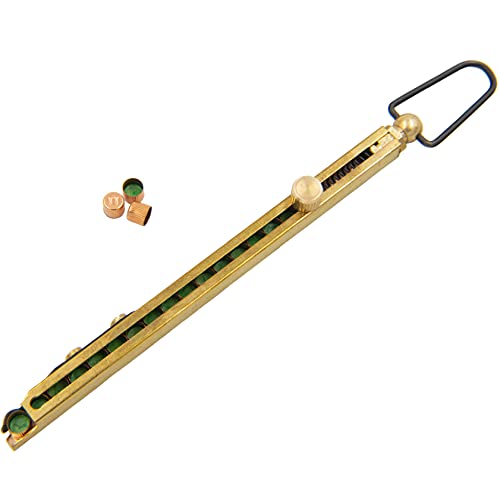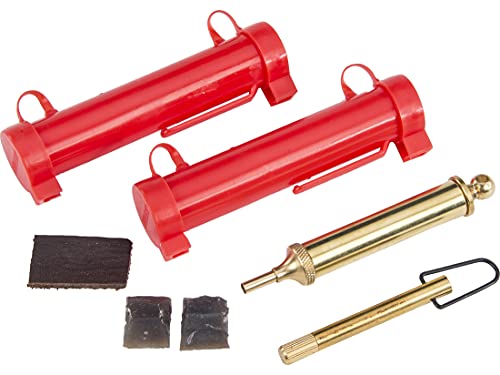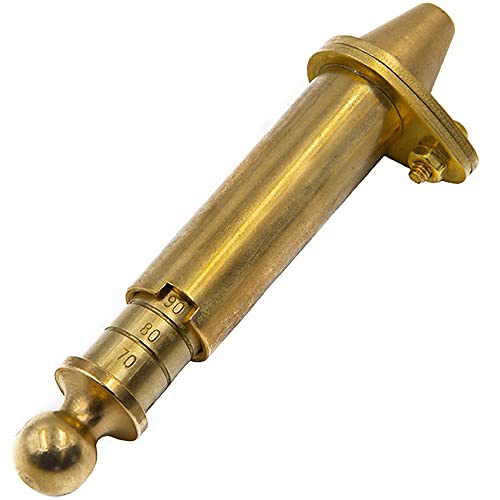This is not a gripe or an opening gambit for a discussion on gun legislation, which is banned on this forum and will result in this thread being shut down. It is simply a practical query aimed at Canadian muzzleloaders. I've posted it on the general forum - rather than the pistol forum - because it might catch people who have thought of pistol ownership but been put off, for the following reasons.
I am thinking of building a flintlock pistol, and am uncertain of the legality. The relevant section of the Canadian firearms legislation is copied below. It shows that I can own a reproduction flintlock long gun without needing any paperwork (I can also buy powder and ball without a permit, and shoot on my own land without a permit - hoorah). However, the factsheet shows that a flintlock pistol is regarded as a firearm and has to be registered. What is unclear is whether or not a flintlock pistol comes under 'handgun' legislation, which is very restrictive in Canada. Of course I could try to find out by contacting the Firearms Centre, but that only seems to be asking for trouble - next thing I know my place would be surrounded by the RCMP. So before going that route I thought I'd see what the experience of other Canadian residents on the forum has been who own or have thought of owning flintlock pistols (particularly those who have built them from parts sent piecemeal from the US, and thus have not had to buy them over the counter as 'firearms' - what do you do when you've finished making your pistol, take it to the local police station to register it, and how do you escape being handcuffed for somehow acquiring a 'handgun' without a restricted firearms licence?).
Again, I'm not soliciting comments about the rights and wrongs of legislation, just any advice from those who have been in this situation. Regrettably, the bottom line is that if the law is going to consider a flint pistol equal to a Glock or Beretta, then I'm going to stick to my long guns ...
Here is the relevant extract from the factsheet issued by the Candian Firearms Centre (www.cfc-cafc.gc.ca/info_for_resneignement/factsheet/antique_e.asp):
Antique Firearms
If you own or wish to acquire an antique firearm, here is some information you should know about how the Firearms Act applies to firearms that meet the definition of an antique, as set out in the Criminal Code and the Criminal Code Regulations.
The Definition of an Antique
The Criminal Code defines antique firearms as:
firearms manufactured before 1898 that were not designed or re-designed to discharge rim-fire or centre-fire ammunition, or
firearms prescribed as antique firearms in the Criminal Code regulations. These are:
Black Powder Reproductions:
of flintlock, wheel-lock or matchlock firearms, other than handguns, manufactured after 1897; (All other reproductions must be registered and owners must have a firearm licence to possess them. For example, reproductions of percussion cap muzzle-loading firearms like American Civil War Enfield and Springfield rifles will be considered firearms and not antiques.)
Rifles:
manufactured before 1898 that can discharge only rim-fire cartridges, other than 22 Calibre Short, 22 Calibre Long or 22 Calibre Long Rifle cartridges;
manufactured before 1898 that can discharge centre-fire cartridges (whether with a smooth or rifled bore), have a bore diameter of 8.3 mm or greater, measured from land to land in the case of a rifled bore, with the exception of a repeating firearm fed by any type of cartridge magazine
Shotguns:
manufactured before 1898 that can discharge only rim-fire cartridges, other than 22 Calibre Short, 22 Calibre Long or 22 Calibre Long Rifle cartridges;
manufactured before 1898 that can discharge centre-fire cartridges, other than 10, 12, 16, 20, 28, or 410 gauge cartridges
Handguns:
manufactured before 1898 that can discharge only rim-fire cartridges, other than 22 Calibre Short, 22 Calibre Long or 22 Calibre Long Rifle cartridges;
manufactured before 1898 that can discharge centre-fire cartridges, other than a handgun designed or adapted to discharge 32 Short Colt, 32 Long Colt, 32 Smith and Wesson, 32 Smith and Wesson Long, 32-20 Winchester, 38 Smith and Wesson; 38 Short Colt, 38 Long Colt, 38-40 Winchester, 44-40 Winchester, or 45 Colt cartridges
Licensing and Registration Requirements
If you own only antique firearms you do not need to:
get a firearms licence; or
register any of your antique firearms.
I am thinking of building a flintlock pistol, and am uncertain of the legality. The relevant section of the Canadian firearms legislation is copied below. It shows that I can own a reproduction flintlock long gun without needing any paperwork (I can also buy powder and ball without a permit, and shoot on my own land without a permit - hoorah). However, the factsheet shows that a flintlock pistol is regarded as a firearm and has to be registered. What is unclear is whether or not a flintlock pistol comes under 'handgun' legislation, which is very restrictive in Canada. Of course I could try to find out by contacting the Firearms Centre, but that only seems to be asking for trouble - next thing I know my place would be surrounded by the RCMP. So before going that route I thought I'd see what the experience of other Canadian residents on the forum has been who own or have thought of owning flintlock pistols (particularly those who have built them from parts sent piecemeal from the US, and thus have not had to buy them over the counter as 'firearms' - what do you do when you've finished making your pistol, take it to the local police station to register it, and how do you escape being handcuffed for somehow acquiring a 'handgun' without a restricted firearms licence?).
Again, I'm not soliciting comments about the rights and wrongs of legislation, just any advice from those who have been in this situation. Regrettably, the bottom line is that if the law is going to consider a flint pistol equal to a Glock or Beretta, then I'm going to stick to my long guns ...
Here is the relevant extract from the factsheet issued by the Candian Firearms Centre (www.cfc-cafc.gc.ca/info_for_resneignement/factsheet/antique_e.asp):
Antique Firearms
If you own or wish to acquire an antique firearm, here is some information you should know about how the Firearms Act applies to firearms that meet the definition of an antique, as set out in the Criminal Code and the Criminal Code Regulations.
The Definition of an Antique
The Criminal Code defines antique firearms as:
firearms manufactured before 1898 that were not designed or re-designed to discharge rim-fire or centre-fire ammunition, or
firearms prescribed as antique firearms in the Criminal Code regulations. These are:
Black Powder Reproductions:
of flintlock, wheel-lock or matchlock firearms, other than handguns, manufactured after 1897; (All other reproductions must be registered and owners must have a firearm licence to possess them. For example, reproductions of percussion cap muzzle-loading firearms like American Civil War Enfield and Springfield rifles will be considered firearms and not antiques.)
Rifles:
manufactured before 1898 that can discharge only rim-fire cartridges, other than 22 Calibre Short, 22 Calibre Long or 22 Calibre Long Rifle cartridges;
manufactured before 1898 that can discharge centre-fire cartridges (whether with a smooth or rifled bore), have a bore diameter of 8.3 mm or greater, measured from land to land in the case of a rifled bore, with the exception of a repeating firearm fed by any type of cartridge magazine
Shotguns:
manufactured before 1898 that can discharge only rim-fire cartridges, other than 22 Calibre Short, 22 Calibre Long or 22 Calibre Long Rifle cartridges;
manufactured before 1898 that can discharge centre-fire cartridges, other than 10, 12, 16, 20, 28, or 410 gauge cartridges
Handguns:
manufactured before 1898 that can discharge only rim-fire cartridges, other than 22 Calibre Short, 22 Calibre Long or 22 Calibre Long Rifle cartridges;
manufactured before 1898 that can discharge centre-fire cartridges, other than a handgun designed or adapted to discharge 32 Short Colt, 32 Long Colt, 32 Smith and Wesson, 32 Smith and Wesson Long, 32-20 Winchester, 38 Smith and Wesson; 38 Short Colt, 38 Long Colt, 38-40 Winchester, 44-40 Winchester, or 45 Colt cartridges
Licensing and Registration Requirements
If you own only antique firearms you do not need to:
get a firearms licence; or
register any of your antique firearms.





















